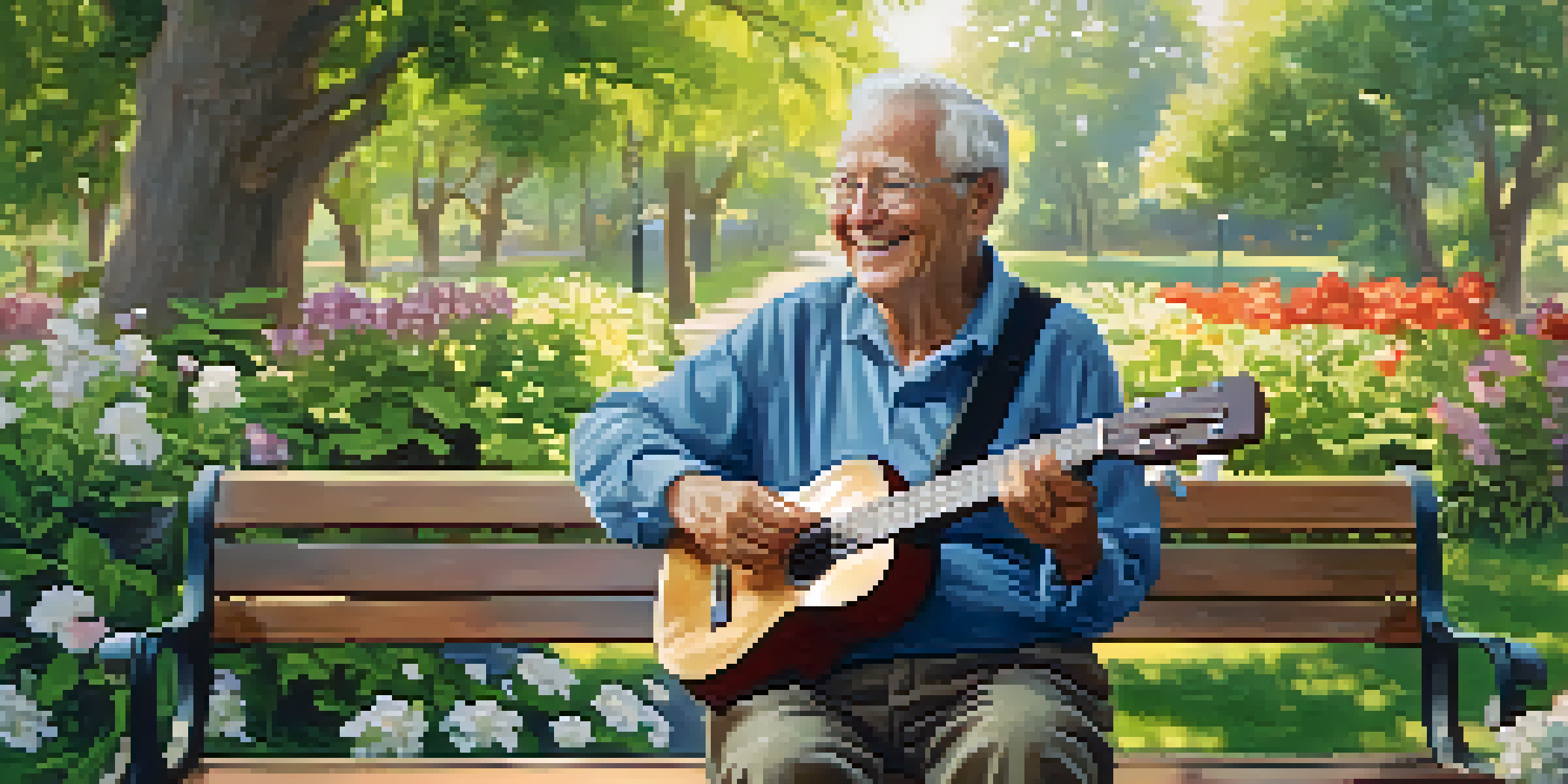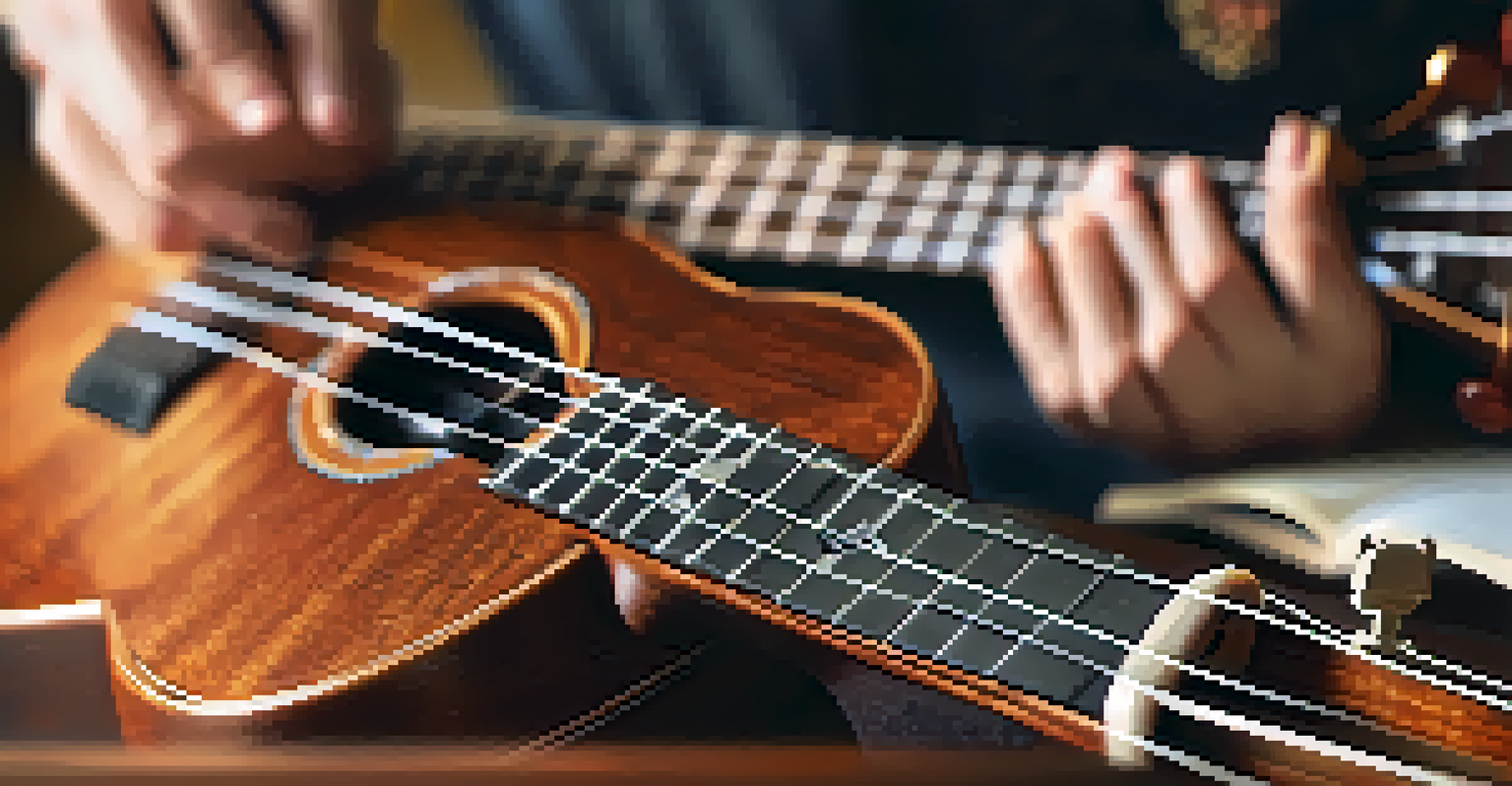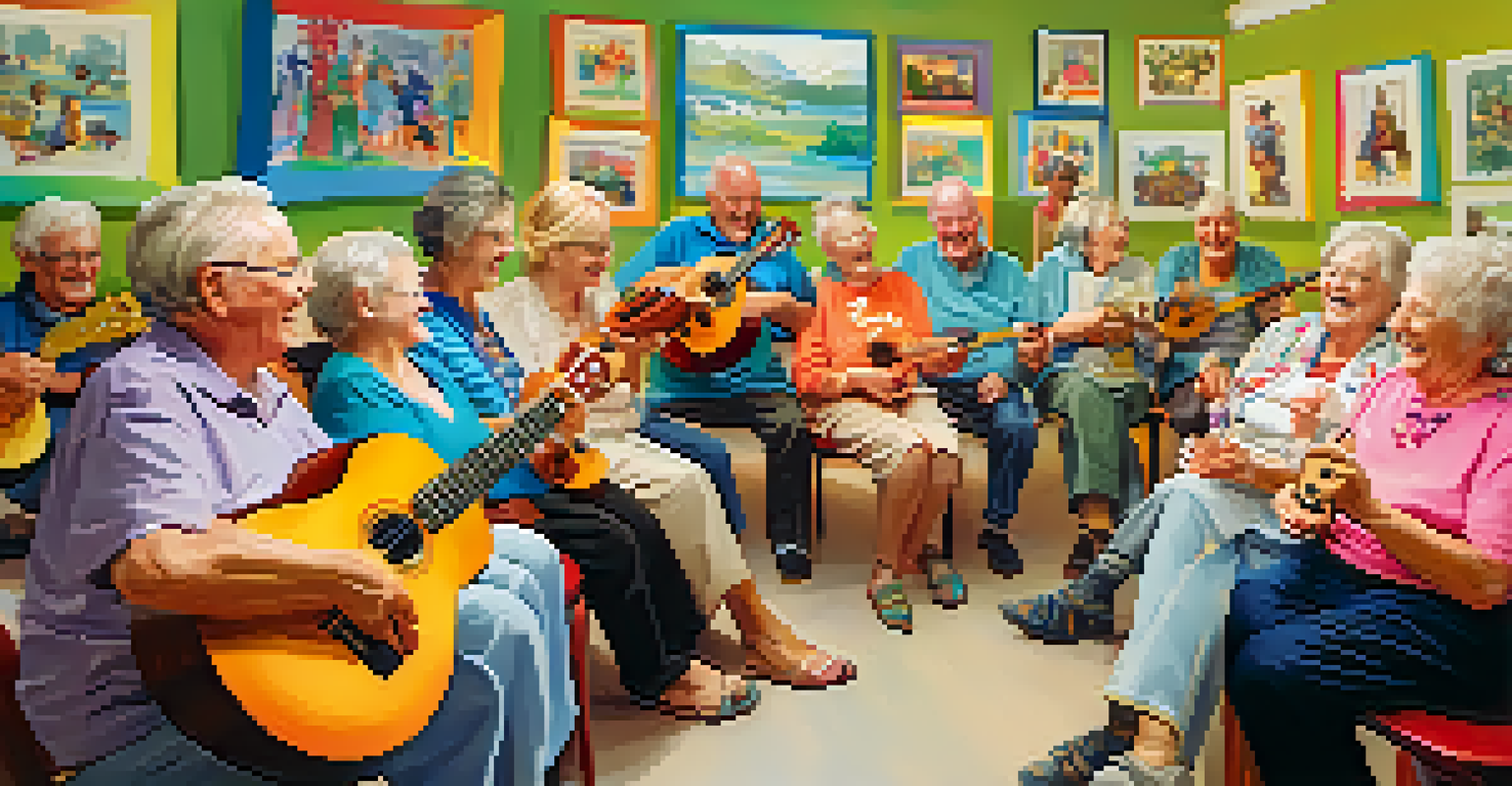Ukulele: A Fun and Easy Instrument for Older Adults to Learn

Why the Ukulele is Perfect for Older Adults
The ukulele is often seen as a friendly and approachable instrument, making it ideal for older adults looking to pick up music. Its lightweight and compact design means it's easy to hold and play, reducing any physical strain. Unlike larger instruments, the ukulele’s four nylon strings are gentle on the fingers, making it a great choice for those who may have arthritis or joint discomfort.
Music can change the world because it can change people.
Additionally, the ukulele has a cheerful sound that can lift spirits and promote happiness. Its simplicity allows players to create beautiful music without the need for extensive training. This means older adults can quickly feel a sense of accomplishment, which is incredibly motivating.
Moreover, learning the ukulele can stimulate cognitive functions and improve memory. Engaging with music can keep the mind sharp while also providing a rewarding pastime that brings joy and companionship.
Getting Started: Choosing the Right Ukulele
Choosing the right ukulele can enhance the learning experience. There are four main sizes: soprano, concert, tenor, and baritone, with the soprano being the smallest and most common. For older adults, a concert or tenor ukulele may be easier to play due to their slightly larger frets, which provide more space for fingers.

It’s also essential to consider the quality of the instrument. A well-made ukulele will produce better sound quality and make the learning process more enjoyable. Look for ukuleles with good reviews or consider visiting a local music store to try a few options.
Ukulele: Ideal for Older Adults
Its lightweight design and gentle strings make the ukulele easy to play, perfect for those with physical discomfort.
Don't forget about accessories! A comfortable strap can help support the ukulele while playing, and a tuner will ensure that the instrument sounds its best. These small investments can make a significant difference in the overall experience.
Easy Chords and Simple Songs to Get You Started
One of the best aspects of learning the ukulele is how quickly you can start playing songs. Many popular songs use just a few simple chords, which can typically be learned in a matter of minutes. For instance, the C, G, and F chords are foundational and can be combined to play countless tunes.
The beautiful thing about learning is that no one can take it away from you.
To make learning more enjoyable, consider starting with familiar songs that bring back fond memories. Whether it’s classic hits, folk tunes, or children’s songs, playing music that resonates emotionally can enhance motivation and enjoyment.
There are plenty of online resources and songbooks designed specifically for beginners. Many of these resources include chord charts and lyrics, making it easy to follow along and play your favorite songs in no time.
Finding the Right Learning Resources
In today’s digital age, there’s a wealth of resources available for learning to play the ukulele. Online tutorials, YouTube videos, and apps provide engaging and visual ways to learn at your own pace. These resources can cater to different learning styles, whether you prefer watching, listening, or practicing hands-on.
Local community centers or music schools often offer classes tailored for older adults, which can provide a more personalized learning environment. These classes not only teach techniques but also create opportunities for social interaction, making the learning process even more enjoyable.
Social Benefits of Group Playing
Joining a ukulele group fosters community and connections, reducing feelings of loneliness among older adults.
Don’t forget about books! Instructional books for beginners can be a great supplement to online learning, providing structured lessons and exercises. Many of these books also include fun songs to keep the practice light-hearted.
The Social Benefits of Playing the Ukulele
Playing the ukulele isn’t just about the music; it’s also a wonderful way to connect with others. Joining a ukulele group or club can provide camaraderie and support, creating a sense of community among fellow learners. Sharing music can foster friendships and provide encouragement, which is especially beneficial for older adults.
Participating in group sessions can also enhance the learning experience. Playing with others allows for collaboration and the opportunity to learn from one another, which can be both fun and motivating. Plus, it’s a great way to enjoy a good laugh when someone hits a wrong chord!
Additionally, music has been shown to reduce feelings of loneliness and isolation. Engaging with others through music can boost mood and promote a sense of belonging, making it a fulfilling activity for older adults.
Maintaining Motivation: Tips for Continued Learning
Staying motivated while learning an instrument can sometimes be a challenge, but there are several strategies to keep the excitement alive. Setting small, achievable goals can provide a sense of accomplishment. For example, aim to learn a new chord each week or master a simple song.
Creating a routine can also help integrate practice into daily life. Setting aside a specific time each day to practice, even if it’s just for a few minutes, can lead to steady progress. Consistency is key, and finding a time that works best for you can make practice feel less like a chore.
Motivation Through Achievable Goals
Setting small, attainable goals and celebrating progress can keep older adults motivated in their ukulele journey.
Lastly, celebrate your achievements! Whether it’s sharing a song with friends or reaching a personal milestone, acknowledging progress can fuel enthusiasm and inspire continued learning.
Conclusion: Embrace the Joy of Ukulele Playing
In conclusion, the ukulele is more than just an easy instrument to learn; it’s a gateway to joy, creativity, and connection. For older adults, it offers an opportunity to engage with music, improve cognitive function, and build meaningful relationships with others. The charm of the ukulele lies in its simplicity and accessibility, allowing anyone to experience the pleasure of making music.
So, whether you’re looking for a new hobby or a fun way to socialize, picking up a ukulele might just be the perfect choice. Remember, everyone’s musical journey is unique, and the most important thing is to enjoy the process.

As you embark on this musical adventure, let the ukulele brighten your days and fill your life with melodies that resonate with your spirit. Happy strumming!